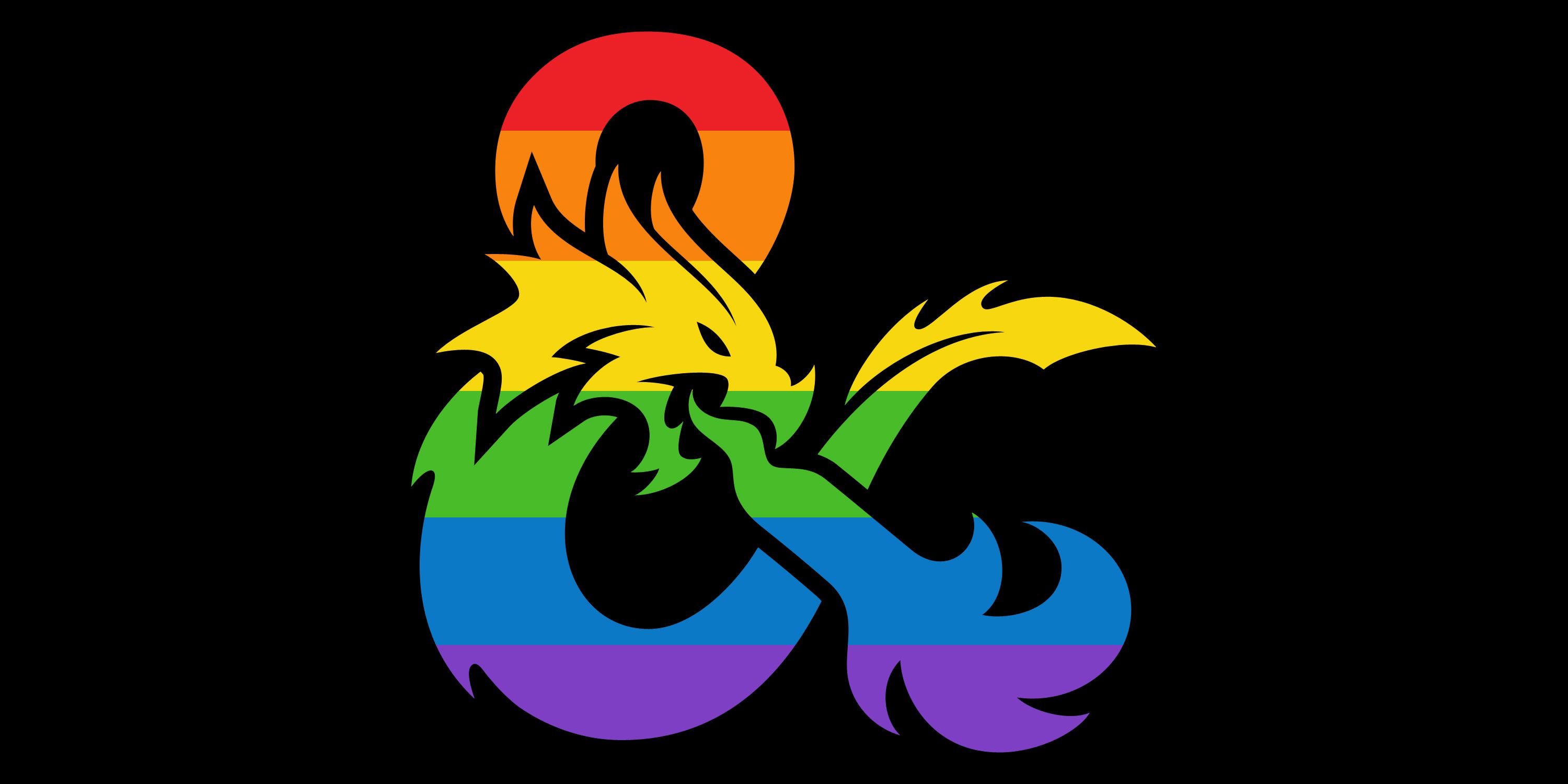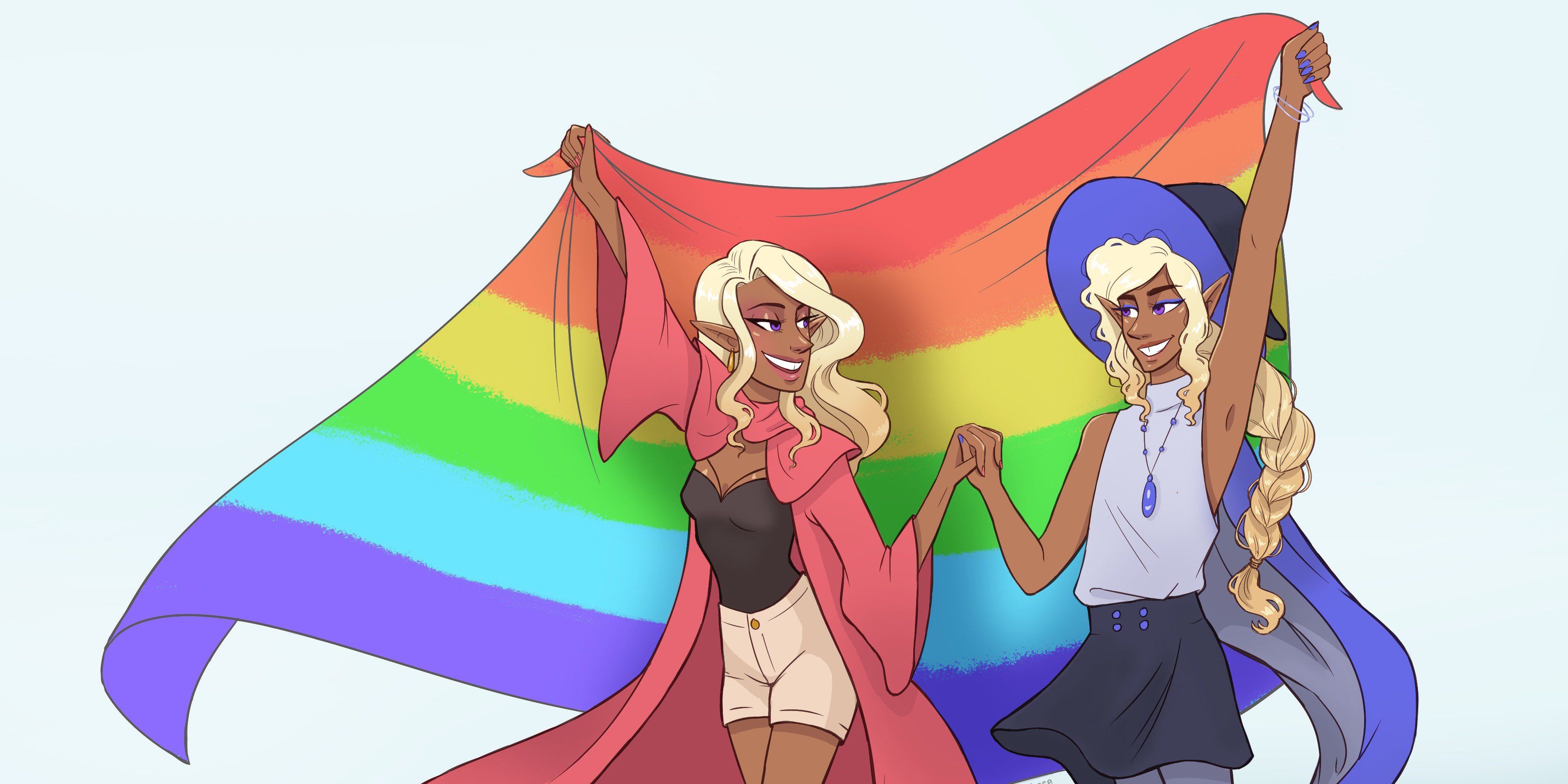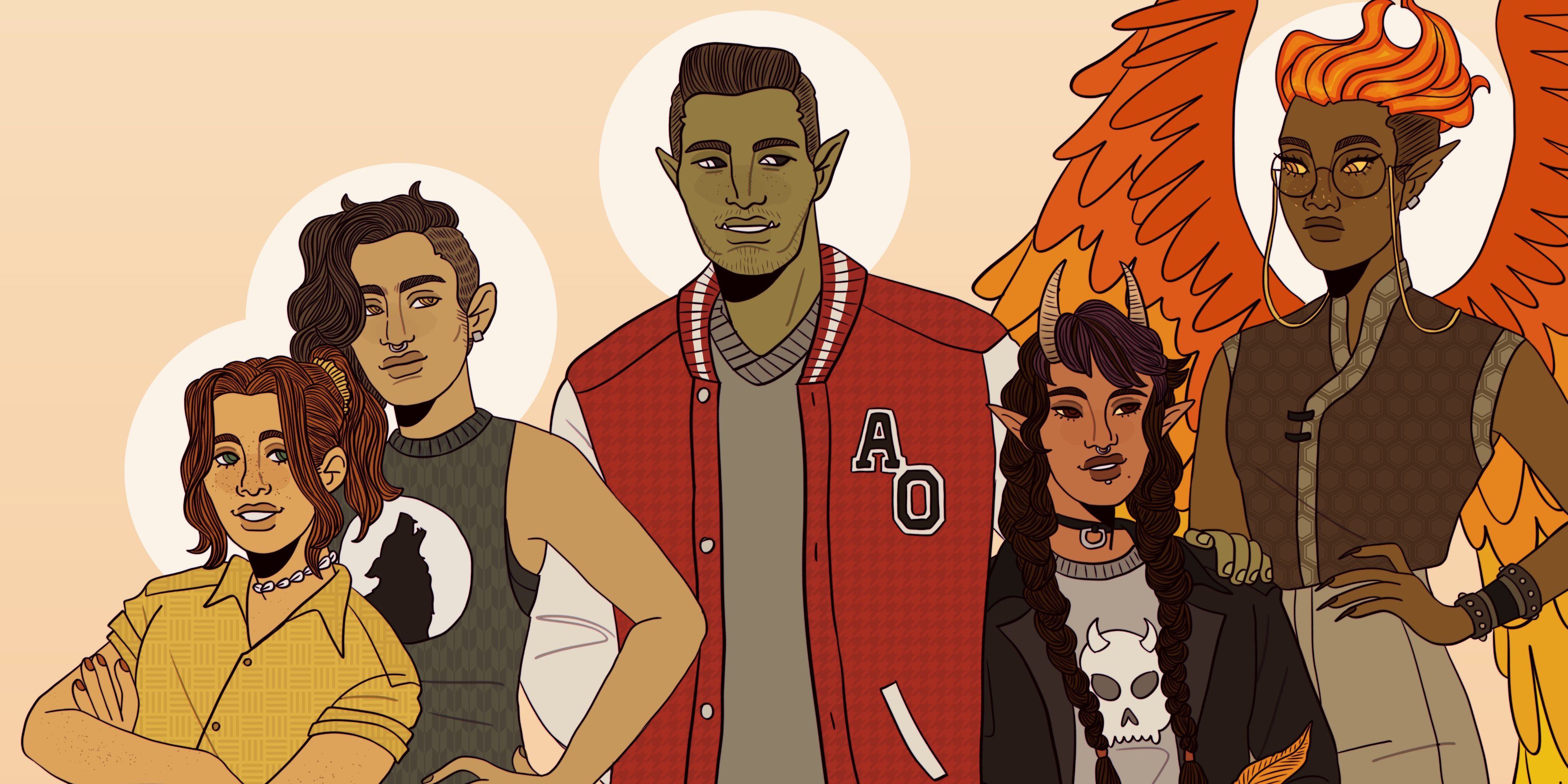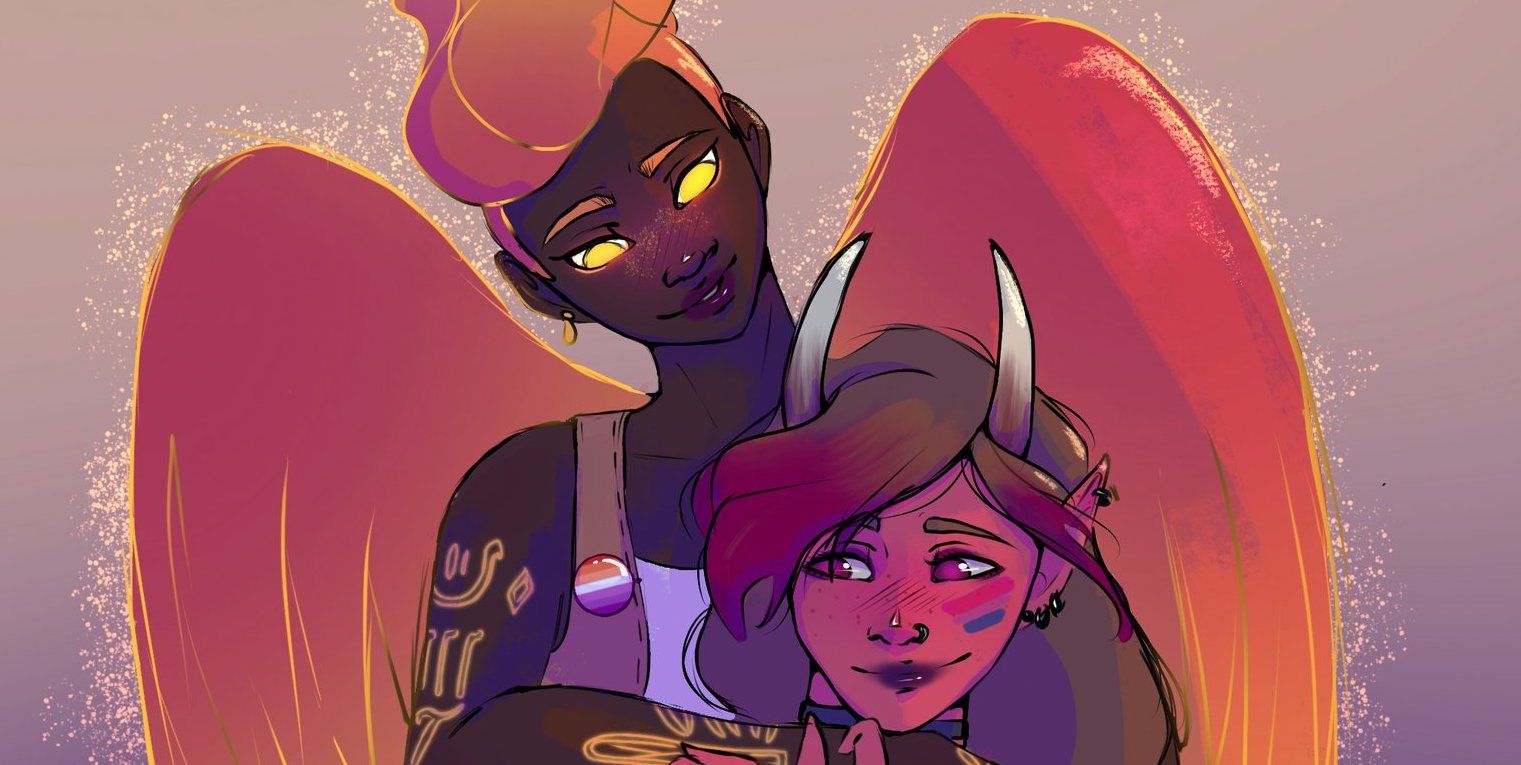Representation in media often sees talented creators battling to get their messages onto platforms where people can see them. This applies doubly so when it comes to LGBTQ representation on TV and film, which are distributed worldwide, including in countries that might censor those messages. But the rise of Dungeons and Dragons "actual-play" shows, like The Adventure Zone and Dimension 20, represents an end-run around those issues.
"Actual-play" shows are a very simple concept: Participants play a tabletop RPG and record themselves doing so as a podcast or web show. While the medium and specific game may vary, they all revolve around improvisational storytelling and many of them are comedic by nature. These shows are often created by small, independent creators who don't have to deal with executive oversight, and distributing their offerings on the internet means they don't have to worry as much about local censors.
One of the most popular actual-play shows is The Adventure Zone, a podcast created by the McElroys. The group is a family of podcasters and comedians consisting of brothers Justin, Travis and Griffin alongside their father, Clint. The podcast was originally created as a bonus episode of the brothers' comedy show, My Brother, My Brother and Me. On the show, the brothers play Dungeons and Dragons, with Justin, Travis and Clint serving as players and Griffin taking on the role of Dungeon Master. Their first "arc" of the show, The Adventure Zone: Balance, featured a ton of LGBTQ characters. One of the main characters, an elven wizard named Taako, is gay. His sister, Lup, is a trans woman. Taako's love interest in the series is a grim reaper named Kravitz, and there are many queer nonplayer characters, from the dryads Hurley and Sloane to the Reclaimers Carey and Killian.
In an interview with the Austin Chronicle, Griffin addressed the importance of the show's representation, saying, "I wanted this world to feel inclusive, and I also wanted it to feel like at the end of the day, everybody’s going to come together for the side of good and earn the happy ending." While he admits it wasn't something the brothers considered when starting the show (it was, after all, simply a bonus episode of their other show), it was something they increasingly made a priority going forward. "You have to be extremely careful and thoughtful about how you do things. And retroactively trying to make that a focus of the podcast when it definitely wasn’t when we started out because we didn’t know about these conversations was tough, but I’m really happy that we put in the effort."
And The Adventure Zone isn't the only actual-play show featuring LGBTQ representation. There's also Dimension 20, an actual-play show started by comedy company CollegeHumor for its Dropout streaming service. The first season of Dimension 20 is Fantasy High, the story of a D&D party attending the "Aguefort Adventuring Academy" in a world that's a mashup of traditional high-fantasy tropes with '80s-style John Hughes teen movies. The story of Kristin Applebees, the party's cleric, is incredibly heartfelt and sees the character's sexual orientation tied into the group's overall arc. Kristen's journey throughout the first episode involves the character losing her faith in her patron god, Helio. But that loss of faith also involves a questioning of Kristen's own identity and who she is, which results in a coming-out narrative, as Kristen realizes she's interested in women.
Beyond Kristen there's also the character of Figueroth "Fig" Faethe, the team's bard, who realizes that she's bisexual at the end of the show's live season, Fantasy High: Sophomore Year. And then there's NPCs like Ayda Aguefort (Fig's half-phoenix paramour), Tracker O'Shaughnessey (Kristen's werewolf girlfriend) and Ragh Barkrock, a half-orc barbarian whose journey towards happiness involves recognizing his own latent homosexuality. Fantasy High takes the weird, wild world of Dungeons and Dragons and uses it to create vibrant and joyful queer characters that make LGBT fans feel like they're part of the show. As Ally Beardsley (the player behind Kristen Applebees) jokes, "Being gay: When you're here, you're family."
In a Q&A for the show, Dungeon Master Brennan Lee Mulligan talked about why representation mattered so much to Dimension 20. "I think what is so incredible is being able to do these storylines and tell truly fantastical stories of heroism and bravery that are completely enriched by this wealth of diversity and experience and perspective." He went on to also talk about diversity in the game of Dungeons and Dragons itself. "I know the demographics of what D&D has been in the past... that's changing. It is more queer than it has ever been. It is more colorful than it has ever been. It is more neurodivergent, more welcoming across the spectrum. Good positive change is never coming fast enough."
The Adventure Zone and Dimension 20 are only two examples from the vast sea of actual-play shows that exist. However, they represent an important trend in media, one where creators don't have to compromise on including LGBTQ characters. They represent a future where the stories people watch, hear and read are as diverse as they are. So get ready for that future -- and roll for initiative.




